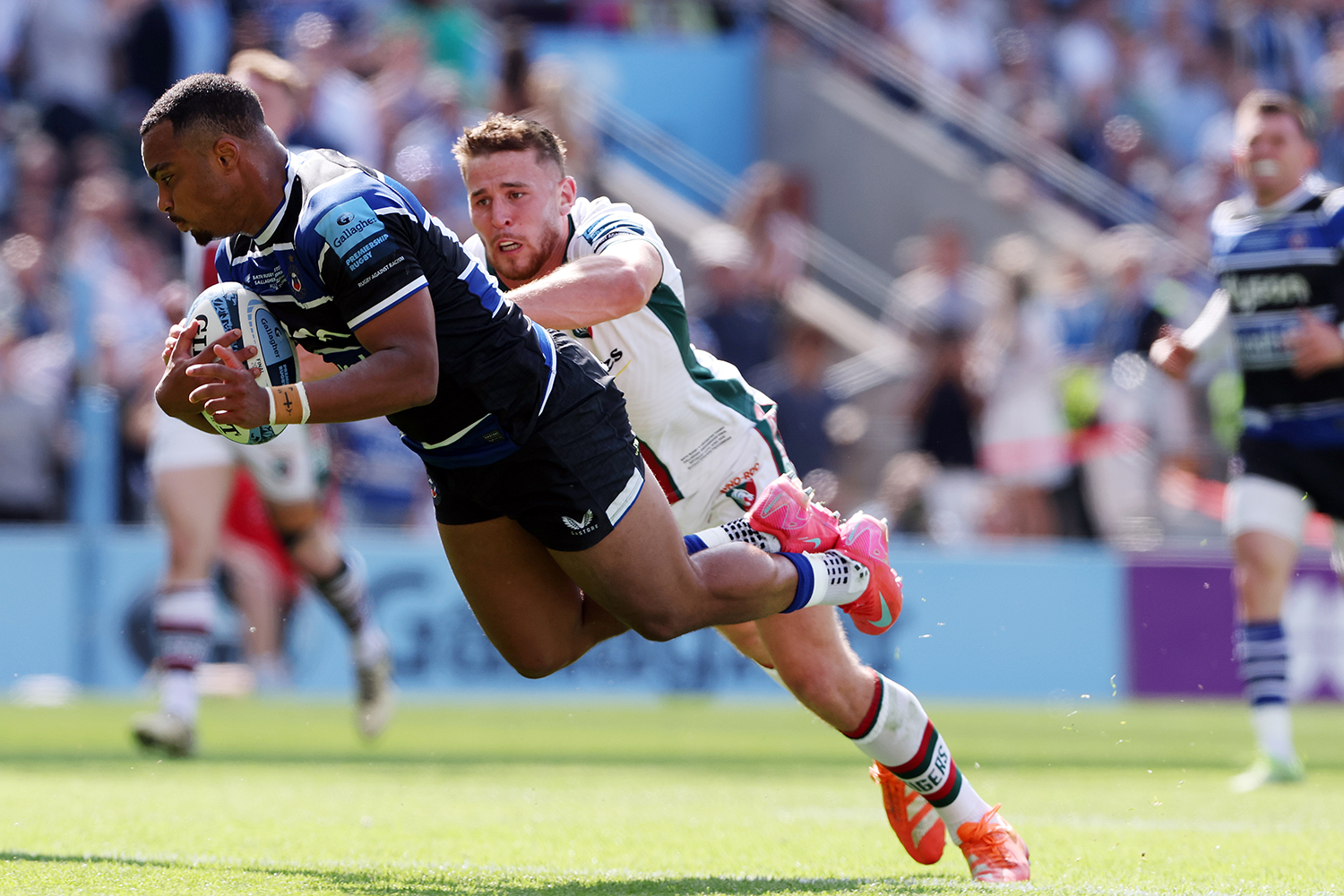Anyone watching 81,708 fans cavort while two of the great names fought for the title would have wondered why a rebel league is necessary.
The only breakaway most rugby followers want to see is a 50-metre one by a winger dancing down the touchline. But on the day the Gallagher Premiership shaved seven letters off its name to become the ‘Gallagher Prem’ next season, there was no mistaking the sport’s desperation to appeal to everyone’s favourite target audience (18-34).
There’s a second mission – to repel a proposed new circus, R360, led by a member of the royal family, no less, in Mike Tindall.
Rugby invented the ‘breakaway’ 130 years ago when 21 clubs seceded from the union code to go professional. Even now the rift between league and union remains emblematic of north-south and class divides.
Nineteenth century schisms around paying players have evolved into spectacular assaults on the establishment: LIV Golf and the Indian Premier League being the biggest ones.
The old certainties of Bath v Leicester, though, evoked the pre-professionalism of the 1980s when these two clubs carved up the sport. Bath’s 23-21 victory here was their first league win since 1996.
Back then nobody felt the need to “talk the way the fans talk” – the official justification for rebranding the competition “the Gallagher Prem” (the one below it will now be called “the Rugby Champ”.)
Thus a word (Premiership) that accurately described the competition has been replaced by one that doesn’t even exist (Prem). Beyond English rugby’s hardcore, blank looks are likely if anyone ever says in the pub: “Did you see the Prem highlights last night?”
The people who dreamt up the new moniker say the Premiership recorded a 30% growth in fans aged 18-34 between 2023 and 2024. It may be true. And nobody in a media organisation could criticise another firm for being Gen Z obsessed.
The morbid fear of not seducing “tomorrow’s customers” has become a corporate religion. R360 is predicated on just such an obsession on what algorithms are telling them young people want.
Newsletters
Choose the newsletters you want to receive
View more
For information about how The Observer protects your data, read our Privacy Policy
Every sport has its quirks, of course. One of club rugby’s is forcing a team that won the league by 11 points (Bath) to win it again in a play-off final in mid-June. But it should be said: there was plenty to be thankful for from a seat at the Twickenham stands. The good humour, the absence of segregation and swansongs by Leicester players who seem to have been around since League legged it in the north.
There was plenty to be thankful for at Twickenham – the good humour, the absence of segregation, the swansongs by Leicester veterans
There was plenty to be thankful for at Twickenham – the good humour, the absence of segregation, the swansongs by Leicester veterans
Naturally, the existing club game has mobilised against R360 – a big noise when the story broke, but silent and largely invisible since then. The breakaway manual requires plotters to shock the sport and then return to the shadows to measure the reaction.
Premiership rugby has counter-attacked by saying the R360 scheme doesn’t add up and would cost £300-400m to implement.
So what is it? If you like thinking in headlines, it promises bumper contracts, a globe-trotting itinerary and a cash bonanza. More specifically, the proposal is for two blocks of fixtures, from April to June and August to September, in line with the international calendar. But signing players to a competition not sanctioned by the governing bodies would render players ineligible to play for their countries.
Oh to have been there when Tindall ran his idea past the Palace. Assuming he did. But R360 will need more than a royal connection to reinvent the club game. It would need star names, venues, new ‘franchise’ names and huge TV contracts to pay the salaries necessary to lure international players.
“Rugby needs roots, it doesn’t need pop-ups,” responded the Premiership’s chief-executive, Simon Massie-Taylor, whose swift riposte showed that the status quo is at least rattled by the R360 plot. “There’s a big difference between a good PowerPoint and the reality of what’s the business model and how does it work,” said the league’s chairman, Martin Phillips.
The league’s TV partners followed the “PowerPoint” line of attack. The most senior executive at TNT Sports, Andrew Georgiou, said: “I’ve been involved in sports for 25 years, I can’t tell you how many of these PowerPoint presentations have come across my desk with people who were absolutely certain that what they had on that page was going to be the new thing.”
Fresh branding, then, for the existing structure, and a new emphasis on the physical integrity of rugby. “Our focus moving forward is going to be on the intensity, the physicality and the extreme athleticism of rugby, as well as the rawness and the grit of our league,” Massey-Taylor said in the week.
If the R360 disappears before birth, the legacy of this, like other breakaways, might be to reduce complacency among those running the sport. Or perhaps multiply the dollar signs in their eyes, as global wealth identifies sport as one of the best places to funnel funds. Rugby union has perpetually dreamt of striking gold while confronting the awkward reality that its profile can only expand so far.
There was a breakaway in this Bath-Leicester final. A thrilling one. Bath’s Finn Russell intercepted, ran 60 metres then threw a pass out to Max Ojomoh for the try of the game. Usually, fans are just happy with that; they don’t spend all that money to watch perpetual revolution.
Photograph by Michael Steele/Getty Images

